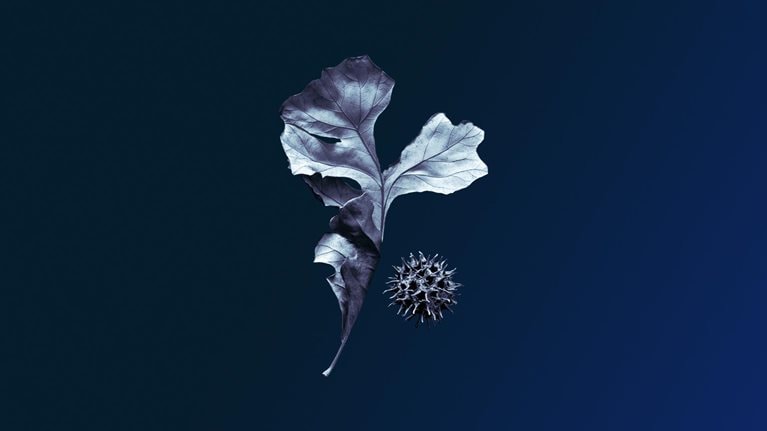In this edition of Author Talks, McKinsey Global Publishing’s Heather Byer chats with Jill Bialosky about her new book, The End Is the Beginning: A Personal History of My Mother (Washington Square Press/Simon & Schuster, May 2025). Iris Bialosky died in March 2020. Her daughter Jill—a poet, essayist, and novelist—tells the story of Iris’s life, beginning with her decline in her 80s, and moving backward through time to her childhood in Cleveland in the 1930s. She chronicles a life that is rich and tumultuous, circumscribed by era and geography. And she looks at her own role in Iris’s story, examining her relationship with her and the joy and pain of motherhood in general. An edited version of the conversation follows.
Why did you write this book?
I wrote this book for a number of reasons. Writing is my way of thinking. For a long time, I wanted to write my mother’s story because she led an extraordinary life, even though she was an ordinary person, in some ways.
I also wanted to write about the way in which one’s life is affected by history. Born in 1933, my mother grew up in a very traditional, modest Jewish family in Cleveland, Ohio. She came of age in an era in which she was expected to be a wife and mother.
She fell in love with my father, and they got married when she was 21. They quickly had three babies. My father died at the age of 30, when my mother was 25. Suddenly, the life that she was expected to have became very different. I was interested in writing this book to capture what life was like in that era for women, and the way that things have not changed, in some ways.
I lost my mother during the first month of COVID, when the restrictions were very intense. You had to be quarantined for 14 days before you could even get on an airplane. My mother was in Cleveland, and I was in New York. I had always wanted to be there when she was dying. Not being able to be there and not being able to attend the graveside funeral made me understand that I needed to write this book. Perhaps the book is the eulogy that I wished I could have given to my mother.
Was there anything that surprised you in the research, writing, or response to the book?
A lot of things surprised me, which was wonderful. More and more, as I was writing the book, I realized how heroic my mother was. When you’re a child or a young person, you only see your parent through a daughter or son’s eyes.
Yet what I loved about writing this book was that I was able to bring my mother to life, even in the years in which I didn’t know her. She was quite heroic, though at times, my childhood was difficult. Writing the book allowed me to be more objective and to understand how deep our connection was and continues to be, even though she’s no longer with us.
What I loved about writing this book was that I was able to bring my mother to life, even in the years in which I didn’t know her.
The book begins with Iris’s death and works backwards, ending with her as a young child. Why did you choose this narrative structure to present the story of your mother’s life?
It happened organically. I was in a residency at the T.S. Eliot house in Gloucester, Massachusetts, where I was working on the book. Of course, being at that house, I was reading Eliot and Four Quartets.
There’s a line in Four Quartets, “The end is the beginning.” The idea of the end being the beginning is pervasive throughout the poem. Somehow, the way in which we’re always a part of our beginnings—and our endings become a new beginning—really struck me.
My mother suffered from Alzheimer’s, and the last years of her life were very challenging. A lot of her was disappearing from me, because she didn’t have the language to express herself.
I thought, “Wouldn’t it be wonderful if I began when she passed away, and then was sort of slowly disappearing from Alzheimer’s, and then I could gradually bring her to life again, through the pivotal moments of her life.”
What do you think Iris would make of this book? How would she describe herself and tell her story?
My sisters feel that she really would’ve loved it. One of them thinks that my mother knows, and that’s a nice thought. Since my mother was very modest, she would be really surprised that her daughter spent so many years trying to revive her or to see her as a person who was important enough to write about. That would’ve really touched her.
Did you feel an obligation to your mom while writing this? How did your relationship with her affect your writing?
One of the joys of writing the book was that I really felt that my mother was alive for me. That feeling kept her very close to me. I wanted to write as honestly as I could about her life, and obviously about mine, to a certain extent. As a result, there were chapters that were really painful for me to write about.
I was very aware that I wouldn’t be able to fully capture my mother as much as I wanted to. While I questioned the integrity of the project at times, I felt that there was something powerful in what I was doing. My hope was that my own personal story would reach others, in terms of their own experiences with their mothers or with a parent. That kept me engaged in writing the book.
There are many maternal figures in this book, including you. How did caring for your younger sister affect you?
The birth of my sister, Kim, was magical. I was ten years old, and it really changed my life. From a very young age, I wanted to be a mother, even before Kimmy was born. In some ways, her birth felt as if I was mothering her, too, along with my other sisters and my own mother, of course. It has affected my life in a very positive way, because when you care for somebody so fragile, especially as a young girl, it’s an incredible experience.
Your book is a memoir of great loss: loss of mothers, and loss of memory, due to Iris’s dementia. You write, ‘Might we be comforted by the idea that forgetting isn’t tragic?’ Explain that and describe how you approach loss now.
The idea that forgetting isn’t tragic is something that came to me as I was writing the book. I write about the progression of my mother’s illness. It was very painful for me to watch my mother slowly lose so much of herself through Alzheimer’s.
Yet, there were times when I doubted that my mother was aware that she had Alzheimer’s and that she was forgetting. I thought, “Well, maybe it’s much harder for the caregivers who watch their loved one diminish than it is actually for the person who’s suffering from the disease.”
I conducted research, and I tried to approach the topic from different angles. My research made me feel certain that my mother was there with her memories, with her own thoughts and feelings. Yet she did not have the ability to express herself in the way in which she had before.
That notion was comforting to me as I wrote the book. The genuine closeness between us was also very touching and important to me.
Would Iris’s having a less traditional view of a woman’s role and a woman’s value have changed how her life played out?
She wanted to be a wife and a mother, and she was very happy. I think those five or six years that she had with my father were the happiest years of her life.
She was a very beautiful girl and a very beautiful woman. She had so many dates, and there were so many boys who wanted to date her. Since that was so important to her, it defined her in some ways and trapped her as she grew older.
She felt that a man would save her or make her happy, whereas I grew up in an era where I was lucky to know that I could go to college, and I could become independent. Since my mother was trapped in her role, it meant so much to me to be independent and able to build a life outside the one that my mother imagined for herself.
If she were born in a different era, and history was not against her, she would have pursued her own talents.
While writing this book, I realized that my mother had more confidence in her daughters and in their ability to build their own lives than she had in herself. She would always ask me, “What should I do?”
If she were born in a different era, and history was not against her, she would have pursued her own talents.
What do you want readers to take from this book on this Mother’s Day? What would you like them to consider about the maternal figures in their life?
I would like people to consider that our maternal figures—our parents, our mothers—had at least two or three decades of life and experience before we were born. Trying to understand those early experiences of who they were beyond their maternal roles could be very important in establishing a connection.
I was lucky that even though my mother was not always present for me, she had a really strong capacity for warmth and love. My hope is that people who’ve had difficult relationships with their mothers [or with other maternal figures in their lives] might celebrate and think of who they were before—and come to a clearer understanding of how their mothers’ own identities were formed.



